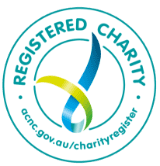A call to end the ‘Discover Dairy’ program in Australian schools
Let’s prioritise healthier, un-biased, evidence-based nutrition education for our children
Doctors For Nutrition Co-Founder and Chair of the Board, Dr Heleen Haitjema, has written to Ministers for Education across most of Australia, calling for an immediate end to the Discover Dairy education program, which uses resources provided by Dairy Australia, in schools.
Our education system has an obligation to provide students with nutrition information that is unbiased and evidence-based. School curricula should be protected from the influences of industry bodies, such as Dairy Australia, whose interests are commercial in nature. Providing a more health-promoting and science-based approach, and incorporating a range of plant-based alternatives, can effectively cater to students’ diverse dietary needs and preferences, thereby enhancing overall lifelong health and well-being.
Our children deserve access to the most accurate and health-promoting nutritional guidance, and it’s time we re-evaluate the role dairy plays in school education.
A growing body of scientific evidence suggests that dairy may have inherent health risks – from heart disease, certain cancers, allergies, digestive issues, and type 1 diabetes – which is concerning when exposure to dairy foods begins at an early age.
Dairy and bone health
Dietary guidelines have long led people to believe that dairy products are essential for optimum bone health, but the evidence does not support this commonly held belief. High dairy consumption has been related to increased rates of osteoporosis and fractures, [1,2] contradicting the widespread messaging that dairy promotes bone health. A 2005 review in the journal Pediatrics showed that drinking milk has no significant effect on children’s bone health. [3] Similarly, a seven-year follow-up of adolescent girls published in 2012 indicated that neither dairy nor calcium intake made any difference in preventing stress fractures. [4] Weight-bearing exercises and other lifestyle factors are far more important in maintaining lifelong bone health. [5,6]

Dairy and heart health
Heart disease is the number one cause of death in Australia and around the world. Cholesterol and saturated fats contained in dairy products are known to increase the risk of heart disease and stroke. [7,8] Scientific studies have documented that a diet free from dairy, with a shift to plant-based nutrition, together with moderate physical activity, cessation of smoking and stress management, can prevent and even reverse heart disease. [9,10]
Dairy and cancer
Various studies have also linked the consumption of dairy foods to certain types of cancer. Dietary studies indicate that dairy increases the risk of prostate cancer in men [11-13], and breast and ovarian cancers in women [14-18]. In one large study involving 23,000 lactose-intolerant people who avoided milk and dairy products, a lower incidence of lung, breast, and ovarian cancers was found than in their dairy-consuming relatives [19].
Dairy and digestive health
Lactose intolerance, which is the body’s inability to digest the sugars within milk due to a lack of, or inactivity of, the enzyme lactase, is highly prevalent worldwide, leading to the development of gastrointestinal discomfort, including abdominal pain, bloating, and diarrhea. [20] While cow’s milk allergy in children is associated with chronic constipation, other gastrointestinal, skin and respiratory symptoms can also arise. [21-24]
Dairy and type 1 diabetes
Early exposure to the A1 beta-casein protein in cow’s milk has been implicated as a causal trigger in the onset of type 1 diabetes, an autoimmune disease often diagnosed in childhood. A study from Australia and New Zealand also identified an increased risk of type 1 diabetes among children who had consumed dairy in infancy. [25] and a subsequent study involving over 3,000 infants with genetic predisposition for diabetes uncovered that early cow’s milk consumption increased their risk for type 1 diabetes.[26] A report by the American Academy of Pediatrics [27] estimated that avoidance of cow’s milk protein exposure in the first three months of life may reduce the risk of developing diabetes by as much as 30%.

Smarter choices for health: Plant-based options
It is important to emphasise that milk and dairy products are not essential in the diet and may pose certain health risks. A diet rich in whole grains, fruits, vegetables, legumes, and nuts can meet all nutritional needs without the health risks associated with dairy consumption. Plant-based milk alternatives, such as soy, almond, or oat milk, offer a lower-saturated-fat option. Essential nutrients for bone health, including calcium and potassium, can be easily obtained from whole plant foods, while adequate vitamin D can be gained through sunlight exposure or supplements when needed.
At Doctors For Nutrition, we urge State Education Ministers across Australia to advocate for the removal of the Discover Dairy curriculum from schools. It’s time to prioritise children’s health by introducing an inclusive, evidence-based nutrition curriculum that empowers them to build a healthier future.
References
- Case-Control Study of Risk Factors for Hip Fractures in the Elderly”. American Journal of Epidemiology. Vol. 139, No. 5, 1994
- Feskanich D, Willett WC, Stampfer MJ, Colditz GA. Milk, dietary calcium, and bone fractures in women: a 12-year prospective study. Am J Public Health. 1997 Jun;87(6):992-7. doi: 10.2105/ajph.87.6.992. PMID: 9224182; PMCID: PMC1380936.
- Lanou AJ, Berkow SE, Barnard ND. Calcium, dairy products, and bone health in children and young adults: a reevaluation of the evidence. Pediatrics. 2005;115:736-743. doi: 10.1542/peds.2004-0548
- Sonneville KR, Gordon CM, Kocher MS, Pierce LM, Ramappa A, Field AE. Vitamin D, calcium, and dairy intakes and stress fractures among female adolescents. Arch Pediatr Adolesc Med. 2012;166:595-600. doi: 10.1001/archpediatrics.2012.5
- Hind K, Burrows M. Weight-bearing exercise and bone mineral accrual in children and adolescents: a review of controlled trials. Bone. 2007 Jan;40(1):14-27. doi: 10.1016/j.bone.2006.07.006. Epub 2006 Sep 7. PMID: 16956802.
- Gómez-Bruton A, Matute-Llorente Á, González-Agüero A, Casajús JA, Vicente-Rodríguez G. Plyometric exercise and bone health in children and adolescents: a systematic review. World J Pediatr. 2017 Apr;13(2):112-121. doi: 10.1007/s12519-016-0076-0. Epub 2017 Jan 15. PMID: 28101776.
- Li Y, Hruby A, Bernstein AM, et al. Saturated fats compared with unsaturated fats and sources of carbohydrates in relation to risk of coronary heart disease: a prospective cohort study. J Am Coll Cardiol. 2015;66:1538-1548. doi: 10.1016/j.jacc.2015.07.055
- Chen M, Li Y, Sun Q, et al. Dairy fat and risk of cardiovascular disease in 3 cohorts of US adults. Am J Clin Nutr. 2016;104:1209-1217. doi: 10.3945/ ajcn.116.134460
- Szeto YT, Kwok TC, Benzie IF. Effects of a long-term vegetarian diet on biomarkers of antioxidants status and cardiovascular disease risk. Nutrition. 2004;20:863-866. doi: 10.1016/j.nut.2004.06.006
- Ornish D, Brown SE, Scherwitz LW, et al. Can lifestyle changes reverse coronary heart disease? Lancet. 1990;336:129-133. doi: 10.1016/0140- 6736(90)91656-U
- Qin L, Xu J, Wang P, Tong J, Hoshi K. Milk consumption is a risk factor for prostate cancer in Western countries: evidence from cohort studies. Asia Pac J Clin Nutr. 2007;16:467-476.
- Song Y, Chavarro JE, Cao Y, et al. Whole milk intake is associated with prostate cancer-specific mortality among U.S. male physicians. J Nutr. 2013;143:189-196. doi: 10.3945/jn.112.168484
- Chan JM, Stampfer MJ, Ma J, Gann PH, Gaziano JM, Giovannucci E. Dairy products, calcium, and prostate cancer risk in the Physicians’ Health Study. Am J Clin Nutr. 2001;74:549-554. doi: 10.1093/ajcn/74.4.549
- Kroenke CH, Kwan ML, Sweeney C, Castillo A, Caan BJ. High- and low- fat dairy intake, recurrence, and mortality after breast cancer diagnosis. J Natl Cancer Inst. 2013;105:616-623. doi: 10.1093/jnci/djt027
- Cramer DW, Greenberg ER, Titus-Ernstoff L, et al. A case-control study of galactose consumption and metabolism in relation to ovarian cancer. Cancer Epidemiol Biomarkers Prev. 2000;9:95-101.
- Larsson SC, Bergkvist L, Wolk A. Milk and lactose intakes and ovarian cancer risk in the Swedish Mammography Cohort. Am J Clin Nutr. 2004;80:1353-1357. doi: 10.1093/ajcn/80.5.1353
- Qin B, Moorman PG, Alberg AJ, et al. Dairy, calcium, vitamin D and ovarian cancer risk in African American Women. Br J Cancer. 2016;115:1122-1130. doi: 10.1038/bjc.2016.289
- Kushi LH, Mink PJ, Folsom AR, et al. Prospective study of diet and ovarian cancer. Am J Epidemiol. 1999;149:21-31. doi: 10.1093/oxfordjournals.aje. a009723
- Ji J, Sundquist J, Sundquist K. Lactose intolerance and risk of lung, breast and ovarian cancers: aetiological clues from a population-based study in Sweden. Br J Cancer. 2015;112:149-152. doi: 10.1038/bjc.2014.544
- Catanzaro R, Sciuto M, Marotta F. Lactose intolerance: An update on its pathogenesis, diagnosis, and treatment. Nutr Res. 2021 May;89:23-34. doi: 10.1016/j.nutres.2021.02.003. Epub 2021 Mar 21. PMID: 33887513
- Iacono G, Cavataio F, Montalto G, et al. Intolerance of cow’s milk and chronic constipation in children. N Engl J Med. 1998;339:1100-1104. doi: 10.1056/NEJM199810153391602
- Dehghani SM, Ahmadpour B, Haghighat M, Kashef S, Imanieh MH, Soleimani M. The role of cow’s milk allergy in pediatric chronic constipation: a randomized clinical trial. Iran J Pediatr. 2012;22:468-474.
- Sampson HA. Update on food allergy. J Allergy Clin Immunol. 2004;113:805-819. doi: 10.1016/j.jaci.2004.03.014
- Host A. Frequency of cow’s milk allergy in childhood. Ann Allergy Asthma Immunol. 2002;89(6 Suppl 1):33-37. doi: 10.1016/s1081-1206(10)62120- 5
- Chia JSJ, McRae JL, Kukuljan S, et al. A1 beta-casein milk protein and other environmental pre-disposing factors for type 1 diabetes. Nutr Diabetes. 2017;7:e274-e281. doi: 10.1038/nutd.2017.16
- Kimpimaki T, Erkkola M, Korhonen S, et al. Short-term exclusive breast- feeding predisposes young children with increased genetic risk of type I diabetes to progressive beta-cell autoimmunity. Diabetologia. 2001;44:63-69. doi: 10.1007/s001250051581
- Eidelman AI, Schanler RJ. Policy statement: breastfeeding and the use of human milk. From the American Academy of Pediatrics. Pediatrics. 2012;129:827-841. doi: 10.1542/peds.2011-3552x





